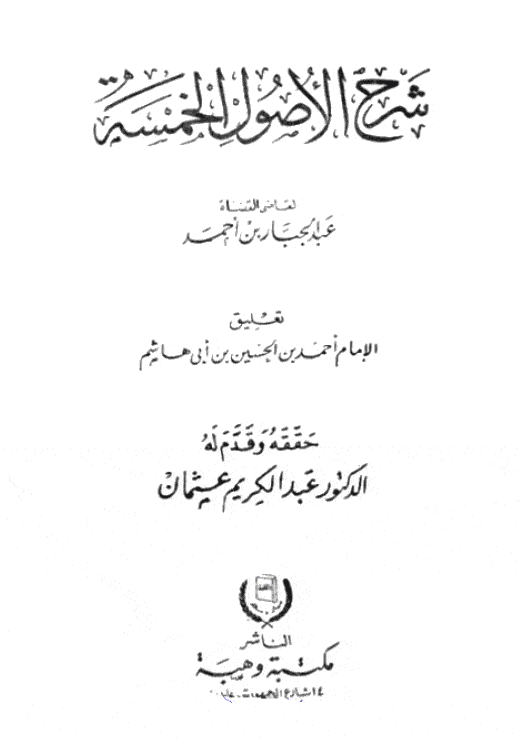We’ve previously covered the Hanafi ulema’s opinion on the Khilafah, and the Hanbali ulema’s opinion on the khilafah; in this article we present the statements of some of the great ‘ulema of the Shafi’i madhhab regarding the Khilafah and its place in Islam. It covers the statements of some of the greatest men this ummah has known, including the likes of Imam Al Ghazali, Imam Al Juwayni and many other esteemed scholars of this luminous madhab.
The Obligation of the Khilafah
Multiple ‘ulema of the Shafi’i madhhab cited consensus on the issue of the Khilafah.
Imam Mawardi, one of the clasically most renowned Shafii fuqaha and a Qadi (Judge) of the Abbasid Khilafah, says in the introduction to his book al Ahkam al Sultaniyyah that his purpose for writing it is to inform those in authority of the laws of governance, so that they see their rights respected and their duties fulfilled. Sure enough, the book became one of the most respected works in the area of siyaasah and Islamic governance, and it is said that it forms the basis for another work, Al Qadi Abu Ya’la’s book Kitab al Ahkam al Sultaniyyah.
Imam al-Mawardi said:
The Imamah (Khilafah) is the succession of Prophethood in the protection of the deen and the managing of the worldly affairs, and its contract for the one who fulfils it in the Ummah is an obligation by consensus, even if al-Asamm has strayed from this consensus [In his al Ahkam al Sultaniyyah, p 56].
Imam al Nawawi, one of the most famous of the Shafii ‘ulema, and one of the most prolific writers the ummah has ever known, who wrote on multiple sciences including the field of hadith, also relays the consensus on the obligation of Khilafah in his 18 volume commentary on Sahih Muslim, which is one of the most respected of the commentaries on Imam Muslim’s collection of ahadith.
Imam Nawawi said:
They (the scholars) consented that it is an obligation upon the Muslims to appoint a Khalifah, and that its obligation is by the shar’, not the mind [In his Sharh Sahih Muslim, 12:205].

An English translation of Imam al Mawardi’s al Ahkam al Sultaniyyah, an authoritative book on siyasah and Islamic governance
Imam Ibn Hajar al Haythami said:
Know that the Sahabah consented that selecting the Imam after the end of the era of Prophet-hood was an obligation. Indeed, they made it the most important of obligations as they were busy with it (giving it priority) over the burial of the Messenger of Allah ﷺ [In his Sawaa’iq al-Muhraqah, p. 7].
Qadi Abdul Jabbar said:
The establishment of the Khilafah is compulsory upon the Ummah, because many of the obligations of Islam cannot be fulfilled without the Khilafah. Muslims cannot meet the full requirements of the principle of Amr bil Maruf wal Nahy anil Munkar because it cannot be established without the Khilafah [In his Sharh al Usul al Khamsah, pg. 759].
It is beneficial to stop here and focus on the first sentence of this quote – that is, the idea that something can become obligatory because it is necessary to fulfil another obligation.
Imam al Haramain al Juwayni was towering figure in the Shafi’i madhhab, so much so that in the madhhab when “al Imam” is said without qualification, it refers to Imam al Juwayni. He was a teacher of Imam al Ghazali, and one of the usuliyeen, authoring al Burhan, an authoritative book in the subject. In his primer to the subject of usul al fiqh he said:
The command to perform an action is a command to perform it and everything which it requires in order to be carried out. For example, the command to perform salah is a command to perform the purification… [in his al Waraqaat]
This principle is of course not restricted to the Shafii madhhab, rather it is a general principle that is acted on by the fuqaha (jurists) and with respect to the subject of Khilafah, acceptance of this principle by extension leads to a hundred more reasons that obligate the Khilafah in addition to more direct textual evidences.
On this note, Abd al Qahir al Baghdadi al Shafi said:
They (Ahl al-Sunnah) said regarding the Khilafah and Imamah that the Imamah is an obligation obligated on the Ummah to the end of establishing the Imam who would appoint for them judges and ministers, secure their frontiers, mobilise their armies, divide the fay’, and give justice to the oppressed of them from the oppressors of them; and they said that the way of contracting the Imamah for the Ummah is by their choice and determination [In his al Farq bayn al Firaq, p271].
In addition to the points listed above, it is telling that Imam Al Mawardi, who was mentioned earlier, in his book al Ahkam al Sultaniyyah dedicates an entire section to each of the topics of Imamate of Salaah, the administration of Zakat and Hajj, and Hisbah, that is, almost a fifth of the work. All of the above have a very strong connection with the Khilafah, and the Khilafah is necessary to maintain them.
With regards to hisbah, which refers to enjoining good and forbidding evil (also emphasized above by Qadi Abdul Jabbar), Hujjat al Islam Imam al Ghazali said in his book:
Indeed Hisbah is the greatest pillar in the deen. It is the mission with which Allah sent all Prophets. If this ceased to exist and its knowledge and practice was suspended, the deen would vanish, the period of no deen would prevail, misguidance and jahl will spread and corruption will become worse, the rent become beyond repair, the lands will be destroyed and the people will perish [In his Ihya uloom ud deen, vol.2, pg. 291].
Imam Nawawi said about Imam al Ghazali’s book that had all the books perished and only Ihya survived it would suffice. Hujjat al Islam Imam al Ghazali was Imam al Haramain’s best student, surpassing his teacher, and also the mujaddid of his century. His statements do hold a heavy weight.
Hujjat al Islam Imam al Ghazzali says:
“The security of the world, its inhabitants and things cannot be achieved except with a just ruler (sultan muta`) where the deaths of both the rulers and the leaders (al-a’imma) give rise to times of extreme sedition and chaos. If this [kind of chaotic situation] continues without another just ruler being appointed, then there will continue to be chaos and disorder […] this is why it is said the religion and the ruler are ‘two connected guarantors’ and that the religion is the foundation (uss) and the ruler its guardian (haris). If there is no foundation for [the religion], it is doomed and if there is no guardian for it, it will perish… this is a malady for which there is no remedy except through a powerful and just ruler who will unify the disparate and differing views. Hence, it is clear that the ruler is necessary for both the systems of this Religion and the systems of this world and vice versa. In addition, the systems of this Religion are necessary for the success and joy of the Hereafter and this undoubtedly was the objective of the Prophets. Therefore, the obligatory character of [appointing] the ruler (imam) is established from the Law (al-shar`) which may not in any way be abandoned. Know this.” [In his al Iqtisad fi’l I`tiqad]
He also says:
“The judges will be suspended, the wilayaat (provinces) will be nullified…the decrees of those in authority will not be executed and all the people will be on the verge of Haram.” [Al Ghazzali in his al Iqtisad fil Itiqad, pg. 24]
[Read More: The Ghazalian Response to Deniers of Causality]

Hujjat al Islam Imam al Ghazali’s book, Ihya Uloom al Deen. Often referred to as an encyclopedia of Islam.
Importance of ruling by the Shariah (the purpose of the Khilafah)
Imam al Haramain al Juwayni said:
…Whoever thinks that the shariah may be derived from what people agree upon, of reason or from the opinions of wise men, has rejected the shariah and has this principle as a means to reject the shariah. These arguments have no strong foundation. If they were to form the foundation of the religion, then you would find that everyone who has some rational power would take his own ideas and thoughts as shariah, and thus ideas and thoughts would take the place of wahy sent to the anbiyah. These ideas and thoughts would vary according to time and place, thus the shariah would have no stability [In his Al Ghiyathi, pg. 381].
Imam Ibn Kathir was another great Shafi’i ‘aalim, who was said to have reached the limits of knowledge in tafseer. His tafseer is probably amongst the most famous today, and he said the following ayah:
يَا أَيُّهَا الَّذِينَ آمَنُوا ادْخُلُوا فِي السِّلْمِ كَافَّةً
“Oh you who believe! Enter into Islam whole heartedly (completely)…” [Surah al Baqarah, ayat 208]
“Allah commands his servants who believe in him and have faith in his messenger to implement all of Islams legislation and law, to adhere to all of its commandments, as much as they can do, and to refrain from all of its prohibitions. The view of Al Awfi, that Ibn Abbas, Mujahid, Tawoos, Ad-Dahhak, Ikrimah, Qatadah, As-Suddi, Abu Aliyah ar-Riyahi, Ar-Rabi ibn Anas, Muqatil bin Hayan, Qatadah and Tabari is that “Kafaatan” means entirety [Tafsir Ibn Kathir, Vol. 1, pg. 581].
Sultan al Ulama Izz al Deen ibn Abdus Salaam said:
Only Allah is to be obeyed exclusively. By the same token, no one has the right to rule or judge except Him, for His rulings are derived from the quran and Sunnah [Izz al Deen Ibn Abdus Salaam, Qawa’id al-Ahkam, Vol.2, pg. 158].
[Read more: The Sultan of Scholars: his life, times and accounting of rulers]
Shihab al Deen al Aloosi said:
There is no dispute in the kufr of anyone who doesn’t have the certainty to judge by what Allah sent down, and moreover, the general design for the denial of faith for anyone not judging by what Allah sent down is one of one class. Thus there is no doubt that the one who doesn’t judge in one matter or thing by what Allah sent down, then he is not one of certainty in the revelation and there is no dispute in his kufr [in his Tafsir Rooh al-Ma’ani].
Ibn Kathir also said:
The shariah encourages whatever is beneficial and discourages whatever is detrimental. Allah has rejected all who would depart from it, and who accept the views, opinions and conventions determined by men without any support from the shariah. This was done in the times of Jahiliyah, when people ruled by chance and blond conjecture in accordance with their own views and opinions. So too do the Tartars rule in accordance with their own rules. This, they say, is the law of the land to which they give precedence, above the Quran and the Sunnah. Whoever amongst them does this is a kaffir who must be opposed until he returns to the rule of Allah and his Rasool. Such a person should not even rule for a day. [In his Tafsir Ibn Kathir, Vol. 3, pg. 123]
![]()















![Imam Malik – Proof of the Community [Biography]](https://www.hizb-australia.org/wp-content/uploads/2016/05/Silhouette-Of-Man-Praying-At-Sunset-shutterstock-800x430.jpg)
